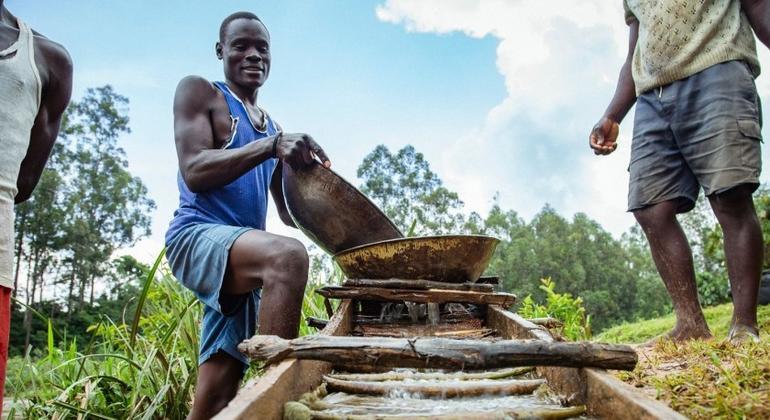Mercury is a toxic metal that can harm the brain, lungs, kidneys and immune system.
It is particularly dangerous for children and pregnant women. Mercury pollution often results from industrial activities, including small-scale gold mining, and can travel long distances through the air and water.
Citizens of Minamata, Japan, suffered for decades from mercury poisoning, after a chemical plant began dumping large quantities of polluted water into the town’s bay in the early 1930s.
Devastating impact
Mercury contaminated fish and shellfish, and those who ate them experienced devastating symptoms ranging from tremors and hearing loss to paralysis and death.
Pregnant women pass on serious disabilities to their unborn children, such as blindness, deafness and severe mental retardation.
Ultimately, public outcry led to an international treaty, the Minamata Convention, which came into force in 2017 to reduce mercury emissions and use of the metal, and prevent such tragedies from happening again.
Under the Convention, delegates from governments, the UN, intergovernmental agencies, civil society, indigenous peoples and youth meet every two years to review progress and push for new actions.
Worldwide, up to 20 million miners work in artisanal and small-scale gold mining operations, which experts say are often unregulated and dangerous.
On Monday, the sixth conference opened in Geneva, with delegates hoping to speed up the phase-out of products that still contain mercury, such as batteries, light bulbs and cosmetics – and reduce emissions from factories and other sources.
They will also discuss ways to improve support to countries that need help to meet their commitments, including financing and technical advice.
Lay the foundations
Speaking at the opening, Elizabeth Mrema, deputy director of the United Nations Environment Program (UNEP), highlighted progress made in helping countries understand the scale of mercury use and emissions, “thus laying the foundation for effective action”.
Ms. Mrema also noted that it was the 20th anniversary of the UNEP-led Global Mercury Partnership, which brings together nearly 300 public and private sector partners to raise awareness of the need for global action on mercury.
The group has helped countries develop national action plans to eliminate the use of mercury – extremely hazardous to miners’ health – in small-scale gold mining operations.




